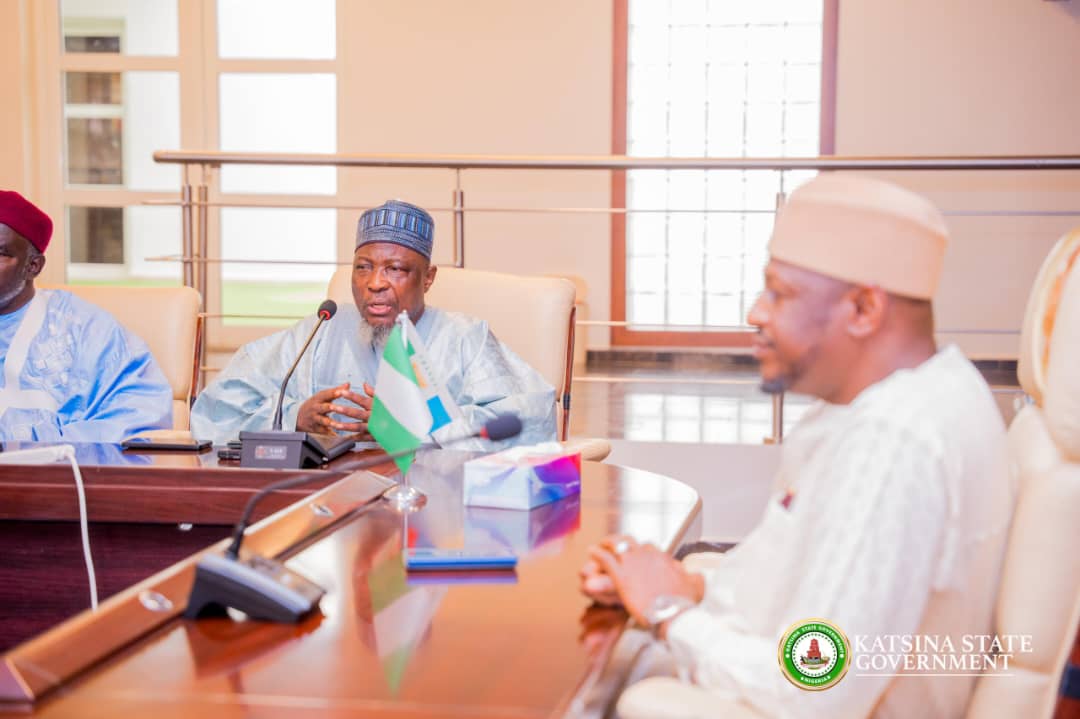Katsina — The Chairman and Chief Executive Officer of the National Hajj Commission of Nigeria (NAHCON), Professor Abdullahi Saleh Usman, has briefed the Governor of Katsina State, Malam Dikko Umaru Radda, on the series of bold and people‑focused reforms introduced by President Bola Ahmed Tinubu in the management of Hajj operations since assuming office.
During the courtesy visit to the Katsina Government House, Professor Usman explained that the Tinubu‑led administration has taken practical steps to reposition Hajj administration in Nigeria, with special emphasis on cost reduction, enhanced medical care, better accommodation, and improved transparency across the board.
He noted that the 2024 Hajj operations marked a turning point in service delivery to Nigerian pilgrims, as they enjoyed significant fare relief despite global inflation and economic pressures. According to the NAHCON chairman, the federal government subsidised key components of the Hajj package while insisting on value and accountability from all service providers.
Prof. Usman also highlighted improvements in healthcare access for pilgrims, revealing that modernised clinics, mobile medical units, and more professional personnel were deployed this year in both Makkah and Madinah to serve Nigerian contingents. He described the welfare arrangements as “more dignified and humane,” with pilgrims lodged in more comfortable facilities, closer to major religious sites.
Furthermore, the NAHCON chairman emphasised the administration’s commitment to transparency. He said President Tinubu’s directives ensured that procurement and pilgrim services were subjected to tighter oversight, with real-time monitoring and regular audits now part of standard procedure.
Governor Dikko Radda, in response, commended the commission’s leadership and expressed appreciation for the federal government’s effort in easing the burden on intending pilgrims. He affirmed Katsina State’s continued cooperation with NAHCON and restated the state’s readiness to support initiatives that prioritise the spiritual wellbeing and physical comfort of pilgrims.
The meeting concluded with a shared understanding that ongoing collaboration between federal and state stakeholders remains key to sustaining the gains recorded so far, and to delivering even more efficient Hajj operations in future pilgrimages.

